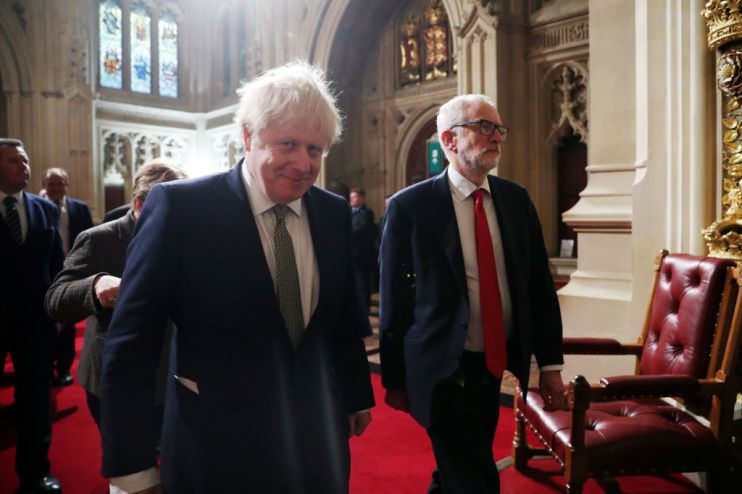PMQs review: We’re in for a dismal ordeal for the foreseeable future

The first Prime Minister’s Questions of the decade yesterday afternoon was the return of the unedifying spectacle of two men, neither of whom wanted to be there, both giving a performance so bad it made the new film Cats look watchable.
Jeremy Corbyn, a blunt tool at the best of times, gave the newly emboldened Boris Johnson nothing to worry about, despite the small matter of escalating tensions in the Middle East, the day after Iran had carried out retaliation attacks on US military bases.
Johnson — who, let’s not forget, already has form with Iran over his fumbled response to the imprisonment of Nazanin Zaghari-Ratcliffe — easily fended off Corbyn’s attacks by referring to the opposition leader’s own tainted relationship with Iran, through his paid-for outings on the theocracy’s state TV.
But beyond the specifics, what was clear yesterday is that Corbyn’s heart just wasn’t it. The man who has opposed western military intervention throughout his career from the backbenches could barely muster the enthusiasm to question what evidence there was to support the American attack, let alone quiz the Prime Minister on his whereabouts over the ensuing days or why he thought we had been left out of the loop beforehand.
The fire in Corbyn’s belly has gone out, and the nation will now have to suffer the worst kind of notice period — three-plus months of going through the motions every week until his successor is finally announced.
Many observers feel that PMQs has been irrelevant for years, a cartoonish theatre that both sides use to create clips for social media rather than a genuine question-and-answer session. Corbyn has been particularly bad, never adapting his questions to the response he had just received, or even to news that might have broken on his way into the chamber. It didn’t matter what answers he got because his focus was on creating a moment of thunderous grandstanding for a Twitter audience, dressed up as scrutiny.
We must hope that this will be a low watermark, as PMQs should be treated as what it is: one of the few opportunities anyone in the country has to hold the Prime Minister to account.
With Johnson’s majority of 80, the need to compromise and work collaboratively with others (even on his own side of the Commons) has evaporated. There is talk of Number 10 increasingly pulling back from interviews in favour of “direct to consumer” engagements, like the Facebook live-streams we saw last year, in which Johnson answered pre-selected questions.
Given the scale of the Prime Minister’s ambition, properly scrutinising him is vital, but tricky under current conditions. One (temporary) solution might be to allow each of the candidates for Labour’s leadership a turn at replacing Corbyn to test their wits against a man (perhaps wrongly) famed for his.
While the candidates vying to succeed Corbyn have plenty to grapple with — not least preventing the party’s implosion — it is time for the PMQs penny to drop: this is not just about getting your 30-second clip, but holding power to account.
In doing so, it will also boost the morale of backbenchers, bring back erstwhile supporters, and it may even enlighten the rest of us on what is really going on at Number 10.
Main image credit: Getty